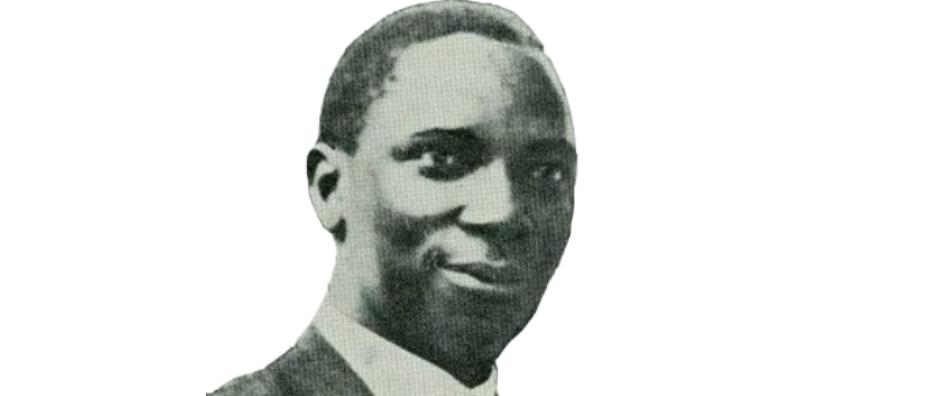The Bahá’í Faith, a world religion that emerged in the 19th century, emphasizes themes of unity, justice, and the inherent nobility of the human spirit. Among the myriad stories that illustrate the courage and resilience of its followers, the tale of the first African Bahá’í martyr holds profound significance. This narrative not only highlights an individual’s fortitude in the face of oppression but also encapsulates the transformative power of faith. The story of this early martyr serves as a poignant reflection of the core teachings of the Bahá’í Faith and offers an opportunity for deeper reflection on themes of sacrifice and devotion.
1. Historical Context
In the late 19th and early 20th centuries, Africa was a landscape of colonial conflicts, ethnic strife, and cultural upheaval. Missionaries often introduced new religious concepts, leading to a complex interplay of indigenous beliefs and foreign ideologies. It was during this tumultuous period that the Bahá’í Faith began to establish roots, fostering an environment for spiritual dialogue and intercultural exchange. This historical backdrop is critical for understanding the significance of the first African Bahá’í martyr’s story and the societal challenges faced by early converts.
2. The First African Bahá’í: A Life of Faith
The individual who would become the first African Bahá’í martyr emerged from a background that exemplified both resilience and devotion. This narrative is not only about a singular person but also embodies the collective aspiration of a burgeoning community seeking enlightenment and justice. Inspired by the teachings of Bahá’u’lláh, the founder of the Bahá’í Faith, this figure faced familial disapproval and societal rejection. Yet, through steadfast conviction, he embodied the Bahá’í principle of seeking truth independent of tradition or prejudice.
3. The Call to Courage
The essence of the Bahá’í teachings champions the courage to advocate for justice, even in the face of adversity. The martyr, whose life became a testament to this principle, exemplified the morality cultivated within the Bahá’í community. His commitment not only inspired local followers but also elevated the collective consciousness of a faith emerging amidst opposition. Courage in the context of Bahá’í teachings transcends mere physicality; it encompasses moral fortitude, the audacity to stand for one’s beliefs, and the willingness to endure hardship for the sake of truth.
4. The Circumstances Leading to Martyrdom
The circumstances surrounding the martyrdom are intricate and steeped in historical injustice. The societal norms of the time vehemently opposed the new religious movement. The martyr faced relentless persecution and auspicious threats for his beliefs. Unlike many narratives of martyrdom, this story does not glorify violence; instead, it underscores a profound devotion to principles of peace and unity, characteristics fundamental to the Bahá’í teachings. The peril he faced was not for rebellion against the state but rather for the propagation of love and harmony.
5. A Legacy of Inspiration
The story of this first African Bahá’í martyr forged a legacy that continues to inspire generations. His courage resonates deeply within the Bahá’í community and beyond, illustrating the power of faith rooted in resilience. This legacy is not only criminalized persecution but also celebrated within the broader tapestry of human rights and liberty. The martyr’s life serves as a reminder that the pursuit of justice often comes with sacrifices, and those sacrifices, while painful, can lead to transformative societal changes.
6. The Role of Martyrdom in the Bahá’í Faith
In Bahá’í theology, martyrdom takes on a significant dimension, transcending the physical act of dying for one’s beliefs. It represents a complete surrender to the divine will and a commitment to the advancement of humanity. The life of the first African Bahá’í martyr encapsulates this ideal—a commitment to peace, service, and justice, propelling the community towards ever-greater unity. The poignant distinction between martyrdom and mere death is reinforced by the values for which one stands; it is an embodiment of the spiritual struggle for truth and justice.
7. Reflections on Courage and Sacrifice
As we delve into the story of the martyr, a reflection on contemporary significance emerges. The themes of courage and sacrifice resonate across various epochs and challenges faced by believers. This narrative transcends geographical limitations and speaks to the universality of the human experience — the struggles against injustice and the quest for dignity are neither bound by race nor creed. Therefore, as historical accounts of martyrdom are recounted, they serve not only to honor the fallen but also to galvanize present and future generations toward humanitarian pursuits.
8. The Continuing Relevance of Bahá’í Teachings
The teachings of the Bahá’í Faith inspired by the life of this martyr include tenets of unity, justice, and the importance of operating with integrity in all aspects of life. The story remains a powerful motivator for believers to act in accordance with these ideals. Through this narrative, one recognizes not just the trials faced by earlier followers but also the imperative to uphold the principles of their faith in their daily lives. The martyr’s legacy serves as a clarion call for ongoing social justice initiatives, promoting unity and understanding across diverse communities.
In conclusion, the story of the first African Bahá’í martyr illustrates profound themes of courage, resilience, and the transformative potential of faith. It highlights the essential role of individuals committed to upholding justice and truth amid societal upheaval. For the Bahá’í community and humanity at large, this narrative remains a beacon of hope, inspiring future generations to champion the values of unity, service, and moral courage.
